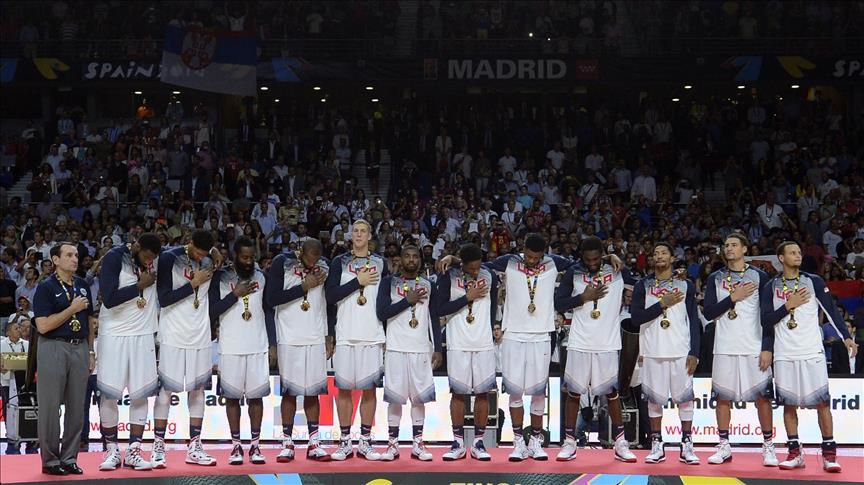Nicolas Maduro defeated as 17 years of Socialist rule comes to an end
 Venezuelans went to the polls Sunday to vote in parliamentary elections expected to be won by the opposition for the first time in 17 years.
Venezuelans went to the polls Sunday to vote in parliamentary elections expected to be won by the opposition for the first time in 17 years.
Nearly 20 million eligible voters are electing deputies to 167 seats in the National Assembly — 113 by nominal vote, 51 by party name and three by and for the country’s indigenous peoples.
According to Anadolu Agency, More than 60 parties are represented, grouped mainly into two coalitions — one aligned with President Nicolas Maduro’s ruling PSUV party, or the opposition’s Democratic Unity Roundtable or MUD.
Ballots in the non-compulsory vote are cast using an electronic voting system boasted to be among the most advanced in the world.
“Voters are demonstrating the democracy that we have fought for over the last 17 years,” Leidy Ribero, 34, from Caracas told Anadolu Agency, after voting for a government-backed candidate. “The opposition slander the government and destabilize the country, for which they do not have any plans,” she added.
Those siding with the opposition, however, were far more vocal on social media where voters posted pictures of ink-stained fingers along with hashtags calling for change in the country.
Among them was 23-year-old Tinaco resident Nohely Marquez, who stood in line with her family for nearly two hours waiting to vote. As with many Venezuelans, her voting decision stemmed from the country’s recession-hit economy and rampant crime.
“The only hope to leave behind our social and economic crises comes from winning these elections and changing our country,” Marquez told Anadolu Agency. “A win by the PSUV would simply see Venezuela and its economy decay further.”
After casting his ballot, Maduro said he “prayed to God the new Assembly would establish a good agenda for the benefit of those who elected them,” in a remarkable mellow tone from the fiery rhetoric used in the run-up to the elections.
Maduro had vowed that his supporters would “take to the streets,” in comments that analysts interpreted as a veiled threat.
His calmer tone may be linked to multiple opinion polls that gave the opposition a sizeable lead, according to Stephen Gibbs, political analyst for The Economist magazine in Caracas.
“The most likely outcome is a simple majority by the opposition, and this is also arguably the best result, as it would force negotiations between an opposition-controlled National Assembly and the Chavistas,” Gibbs told Anadolu Agency, referring to supporters of the fiery brand of Bolivarian socialism of popular late president Hugo Chavez, whose face was ubiquitous in the government’s campaigns and speeches.
“Clearly, some of Chavistas thought they could see a win by the opposition coming. There was a noticeable reduction in their demonizing of the opposition in recent days,” he said. “However, a victory announced for the government would be condemned by the opposition as fraudulent, and seen as suspicious by many in the international community.”
A small majority would not allow the opposition to effect significant change, but it would be symbolic as the first time a Chavista government would be challenged by a legislature in opposition control.
Voting initially scheduled to end at 6 p.m. local time (GMT2230) was extended one hour or “until there were no further voters in line,” despite claims from some National Electoral Council (CNE) officials that there was no legal basis for the decision.
Local media reported that the government launched a push to get its voters to turn out in the final hours of the vote and could benefit from the extension of voting hours, as pro-opposition voters had turned out early.
Several “serious irregularities” in the voting process were noted by opposition media, including violations of electoral law by the state-run television channel and government supporters outside polling stations. Cases of forced voting were also reported.
Exit polls weren’t allowed for the election, and despite the electronic nature of the vote, results are revealed only by the CNE once there is an insurmountable lead by one side.
Results in 2010 were made public eight hours after polls closed.
[adrotate group=”10″]
 Venezuelans went to the polls Sunday to vote in parliamentary elections expected to be won by the opposition for the first time in 17 years.
Venezuelans went to the polls Sunday to vote in parliamentary elections expected to be won by the opposition for the first time in 17 years.
